I love eggs! From my head down to myyy legs!
I don’t remember how the rest of the jingle goes, but the American Egg Board’s marketing really worked on me. But perhaps you’re a little suspicious of these pre-chickens. Perhaps you’re wondering the same question I’m often asked: Will eating eggs raise my cholesterol?
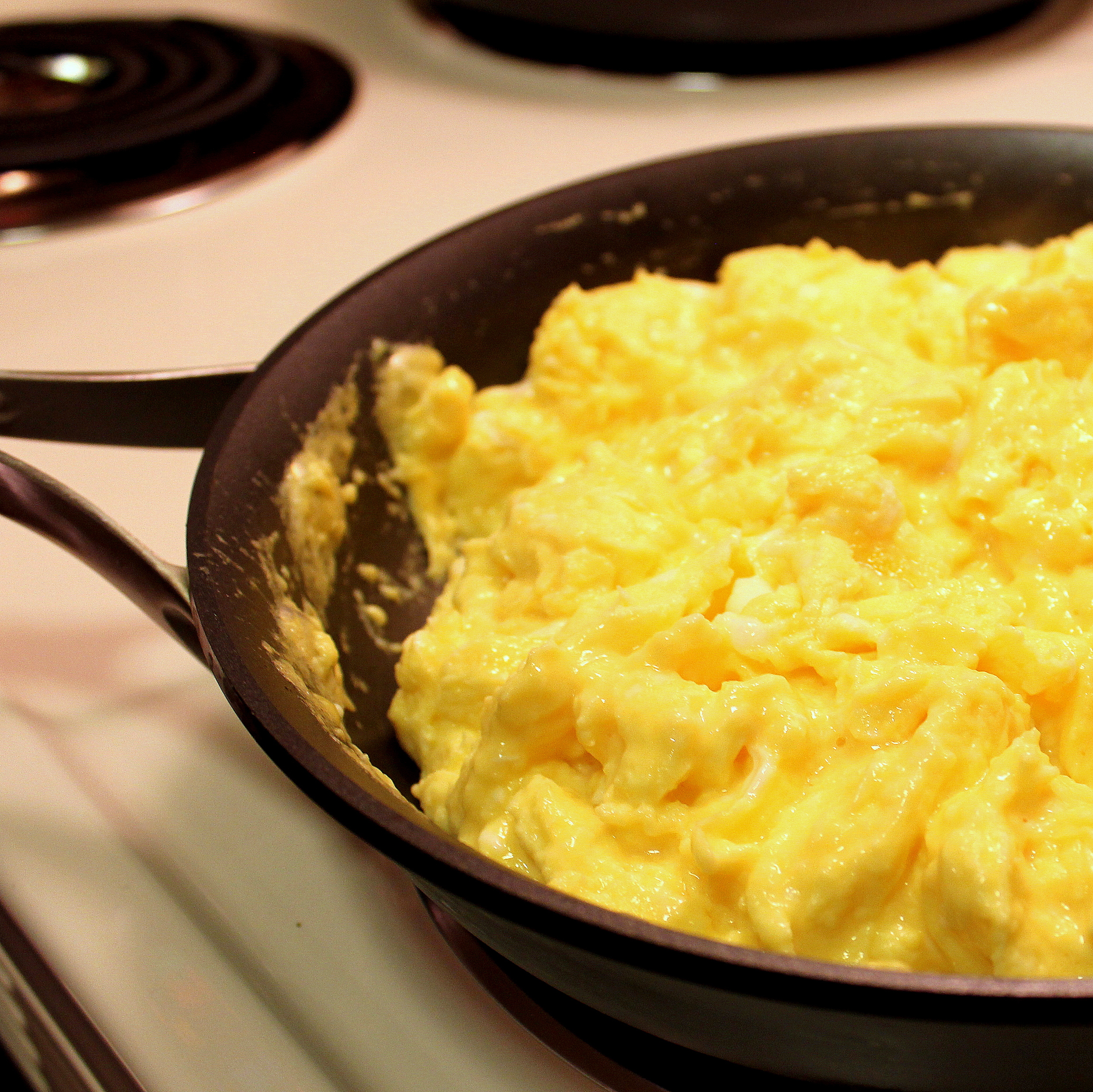
Delicious scramble…
The short answer: Nope. An egg a day for most people is just fine and won’t raise your LDL cholesterol (that’s the bad kind — remember: L is for Lousy).
The long answer: Once upon a time researchers found a correlation between high blood cholesterol and heart disease. And so, rather logically, the American Heart Association (AHA) began recommending that Americans decrease their consumption of dietary cholesterol (that is, the cholesterol that we eat from food). And what food is particularly high in cholesterol? That’s right: eggs. Specifically, the yolk.
And so began the war on the delightful yellow center of the Egg.
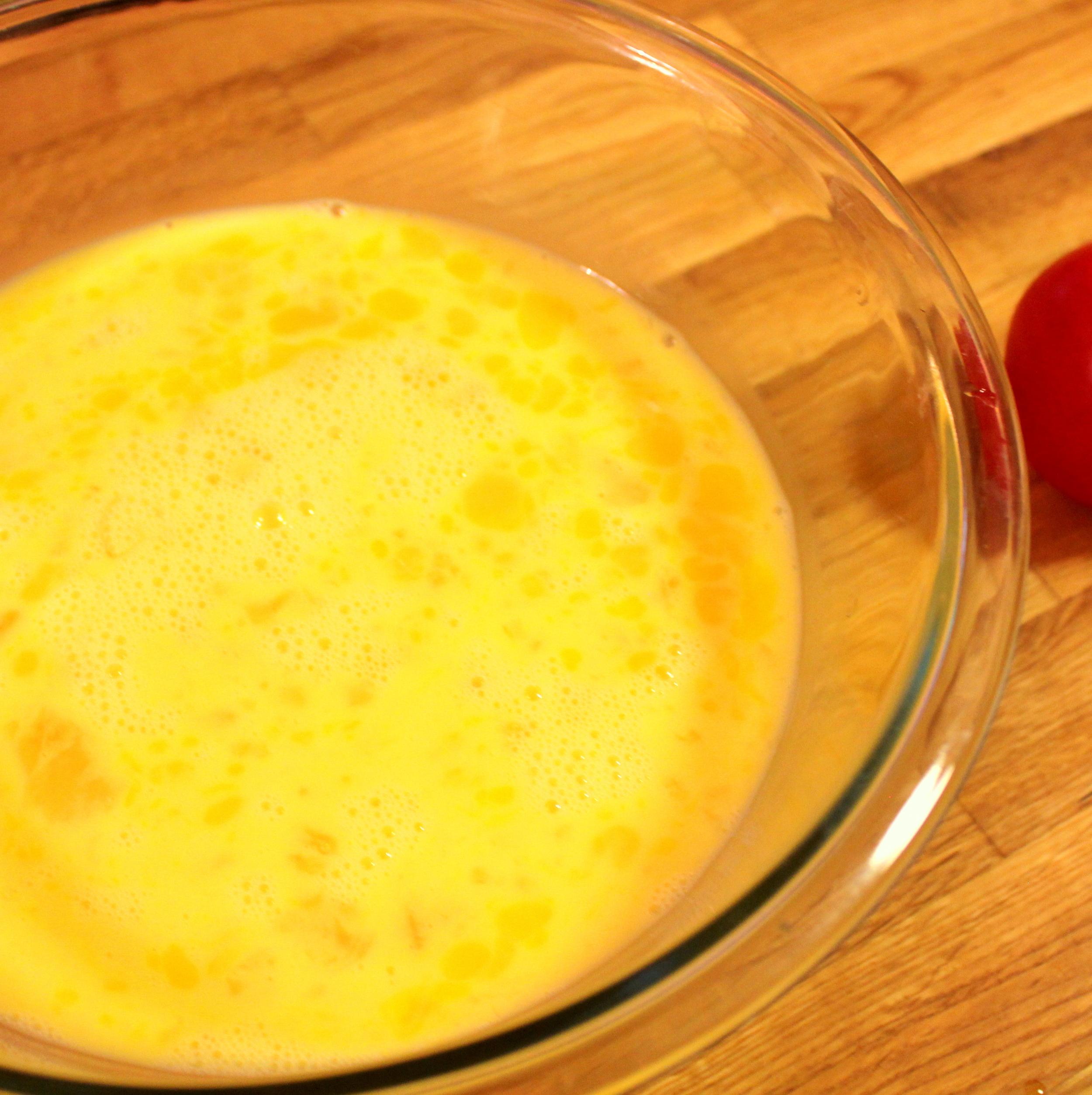
Eggy eggs before the scramble
One large egg has about 185 mg cholesterol (most of which is found in the yolk), and back in 2000 when the AHA was recommending individuals consume less than 300 mg of dietary cholesterol per day, you can imagine why people everywhere fled from the vile egg.
Fast forward a few years, after some pretty major epidemiologic studies had taken place. As it turns out, your very own liver contributes waaaay more cholesterol to your blood than from what we eat. So the real question is: what does your liver make cholesterol out of?
Why, FAT, of course! But not just any fat; specifically saturated and trans fats. That ‘ol liver just has a hay day when you eat a big, greasy bacon cheeseburger.
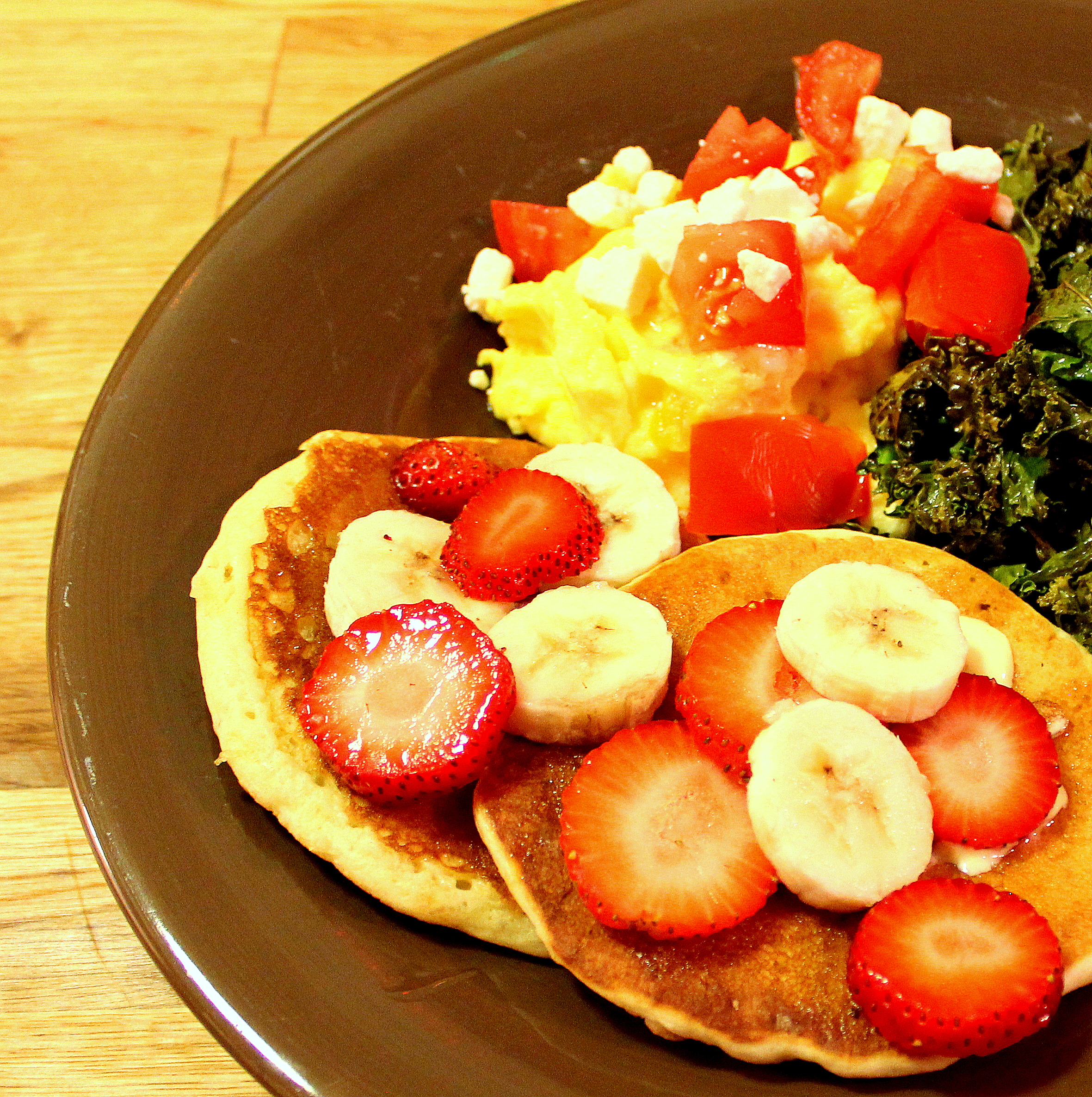
Are you tired of learning about eggs? This is what’s for dinner tonight!
So, dear eggs have now been welcomed back into the family circle of healthy nutrition. In fact, the latest guidelines from the AHA only state the importance of decreasing the aforementioned fats to lower LDL cholesterol. In regard to dietary cholesterol, they only state that “There is insufficient evidence to determine whether lowering dietary cholesterol reduces LDL–C.”
Furthermore, a workgroup with the Academy of Nutrition and Dietetics has determined:
>
“Independent of other dietary factors, evidence suggests that consumption of one egg per day is not associated with risk of coronary heart disease or stroke in healthy adults…”
Have I convinced you? Welcome back, eggs. You’re in. Bacon, you’ll have to take a back-seat thanks to your sat fat content. Instead, tonight we’re enjoying scrambled eggs with my new favorite addition: Kale.
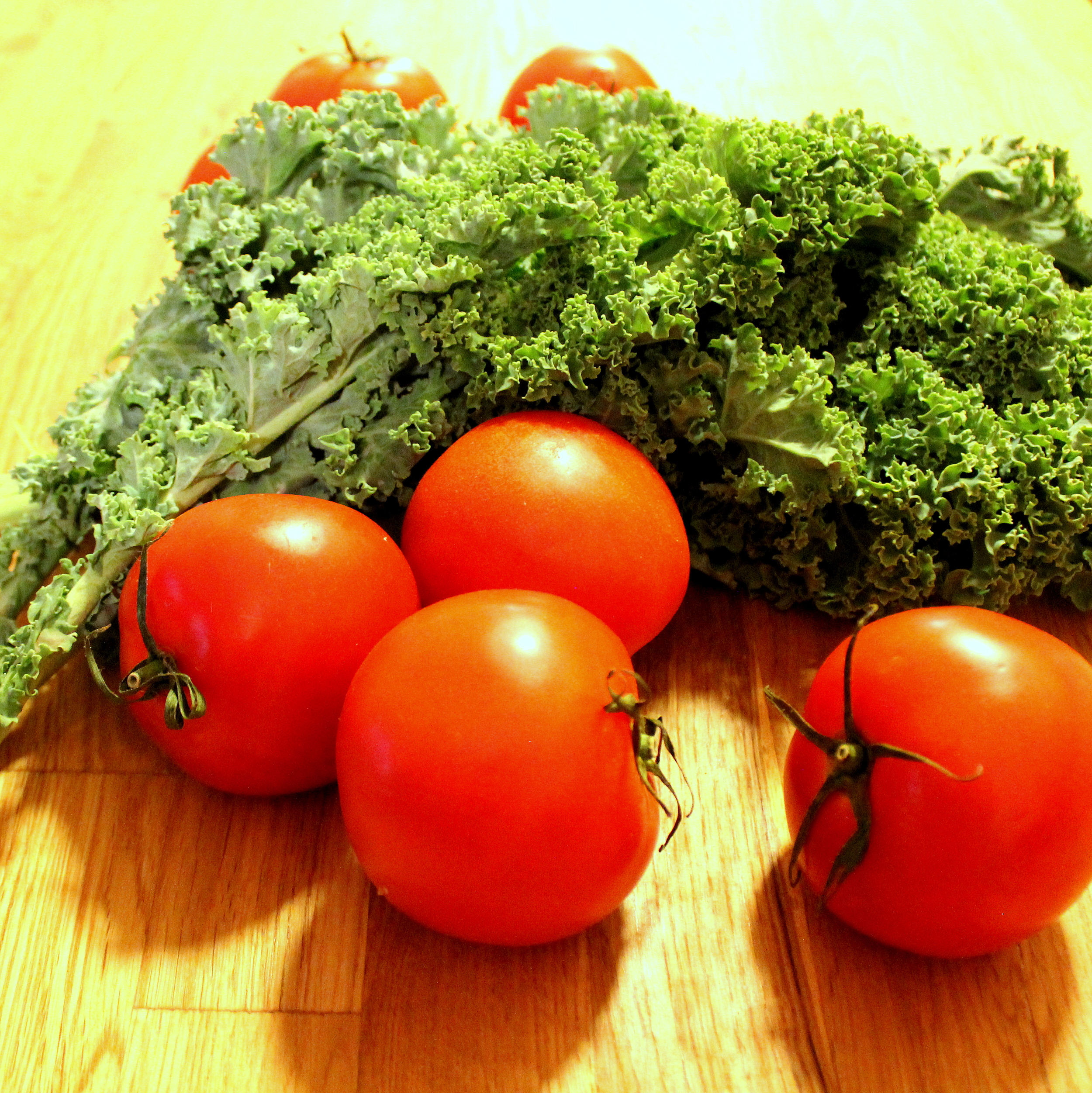
Look how beautiful it is!
I’ve already lectured you on the delights of eggs, so I’ll save the beauty of kale for another day. For now, here’s what you need to know about picking good kale:
-
Find it fresh! Best at the farmer’s market, worst if it’s been in your fridge for a week (oops).
-
Find bright, crisp leaves. No brown on the edges and they shouldn’t be wilty.
-
Bigger isn’t better — smaller leaves are usually more tender and less bitter
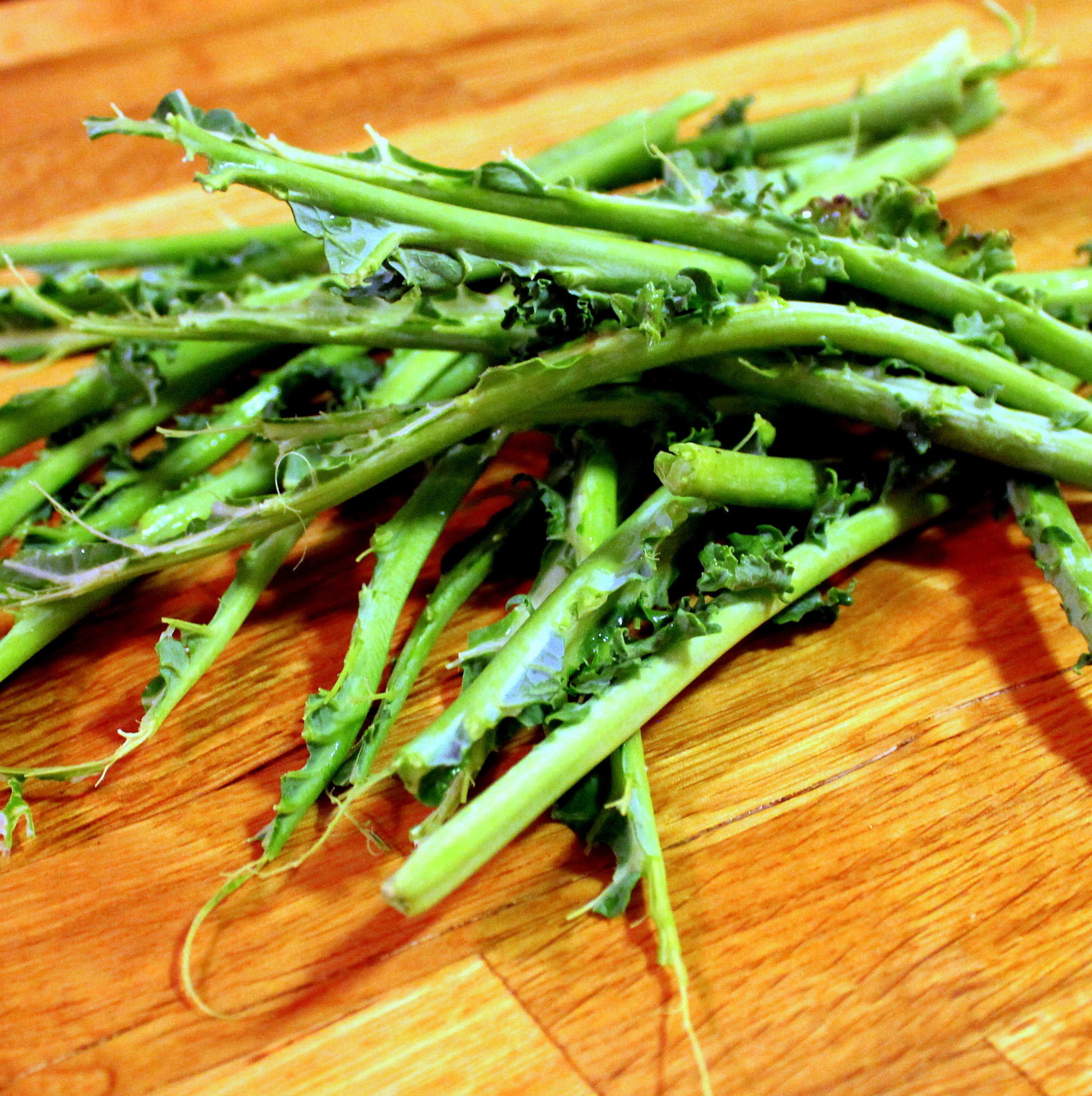
Don’t eat these, unless perhaps you are a cow or horse. Or probably a goat.
Kale has lotssss of fiber. So much fiber that you can’t eat the stem. Take your bunch of kale and strip off the leaves and tear them into bite-sized pieces. You’ll be left with the woody kale stalks that look like this —–>
Now toss a little canola oil (about 2 Tablespoons) in a pan and start sautéing! Don’t fret if it looks like a lot; kale shrinks as it cooks. Not quite like spinach, though — I love that kale still holds its shape as it cooks and doesn’t become a pile of mush. Much more appetizing, I think.
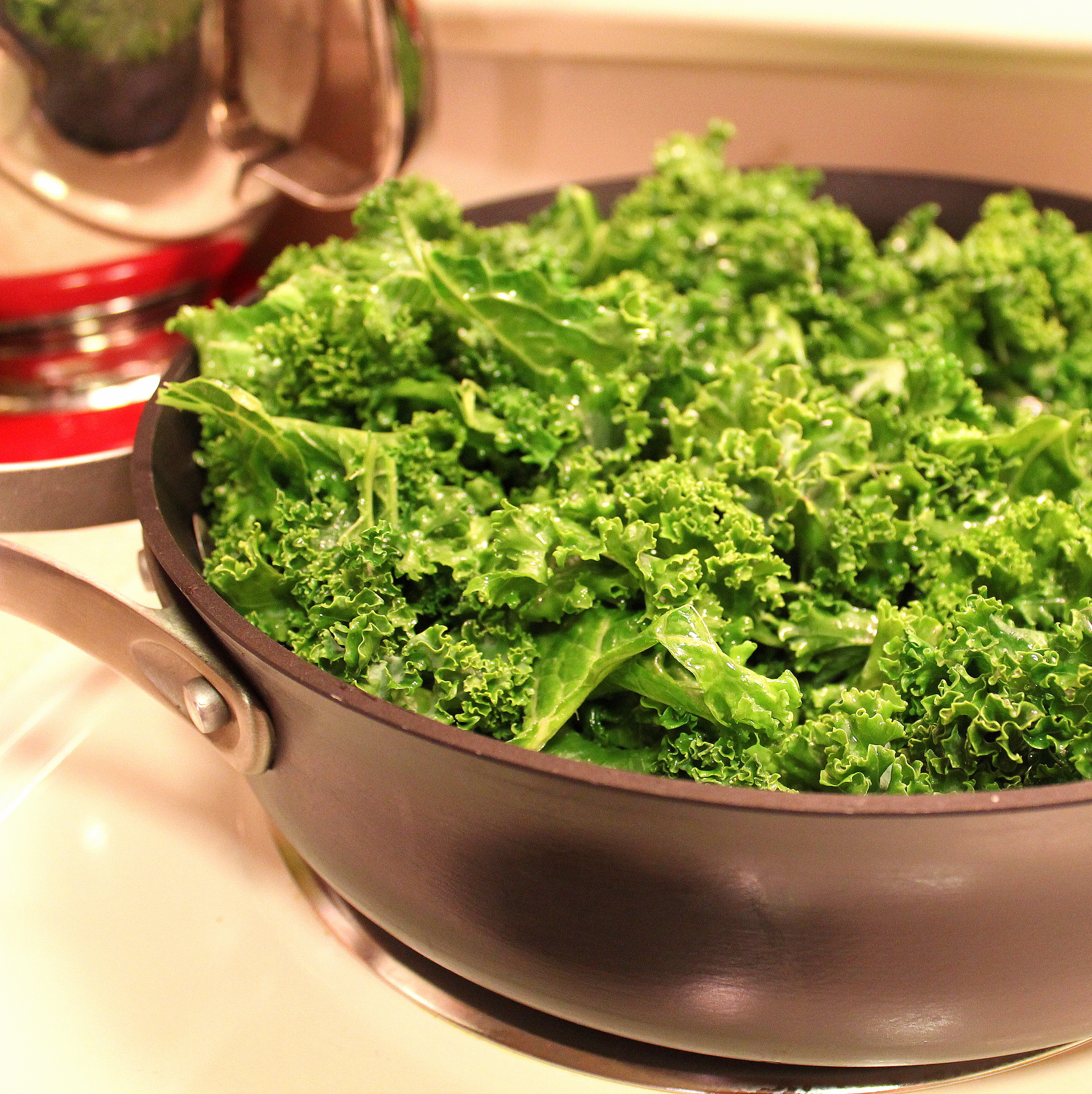
Yum. Go superfood kale!
While your kale sautées, in a mixing bowl beat 8 eggs, 1/4 cup of milk, and 1/4 tsp. salt. Heat a non-stick skillet over medium heat; when the pan is warm, add your eggs. Stir every few minutes with a heat-resistant spatula.

See how much the kale cooked down?
Cook the eggs until creamy, then remove from heat. My dear friend Lauren taught me to not overcook my scrambled eggs and it has made ALL the difference. The eggs are so creamy and smooth — not tough and rubbery. Yuck. I had no idea how wrong I had been cooking my eggs all these years!
Now dice a few fresh tomatoes. My favorite knife in the kitchen is usually my 10-inch chef’s knife, but for tomatoes I sometimes like to use a serrated knife. This probably goes against all good chef recommendations, but I find that when my knives are a little too dull for the task, a serrated knife helps slice throught the skin without smashing the tomato into a giant mess.
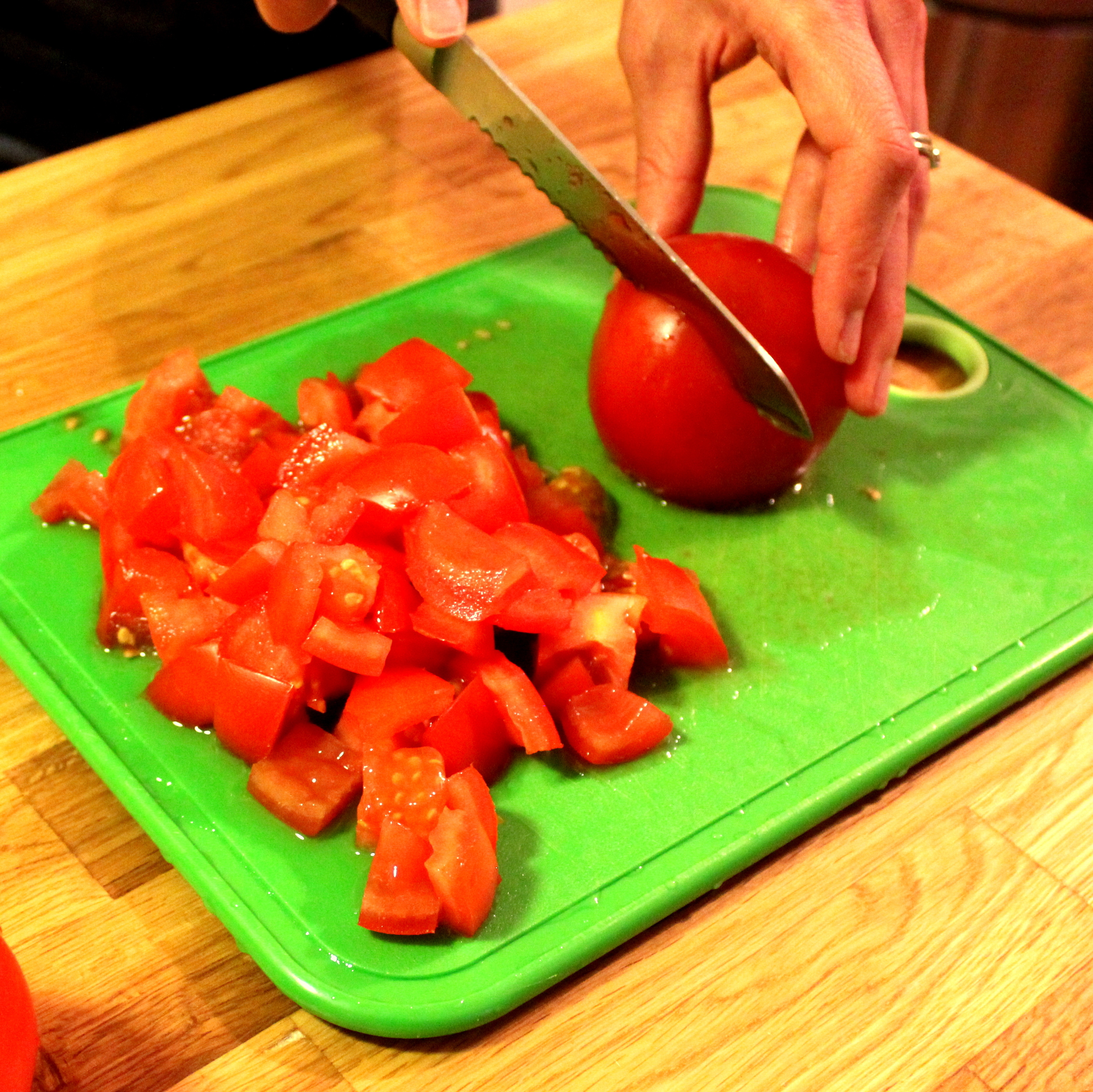

Pancake goodness <3
Meanwhile, have your amazing husband make pancakes. I will take credit for stumbling upon a great recipe, but he somehow makes them into the best pancakes. I think he gets his mad skills from his dad, who also makes fantastic pancakes. You can find the recipe here.
When everything is done, plate your delicious meal and toss a bit of feta cheese onto your eggs. And you have one picture-perfect breakfast-for-dinner. Enjoy!
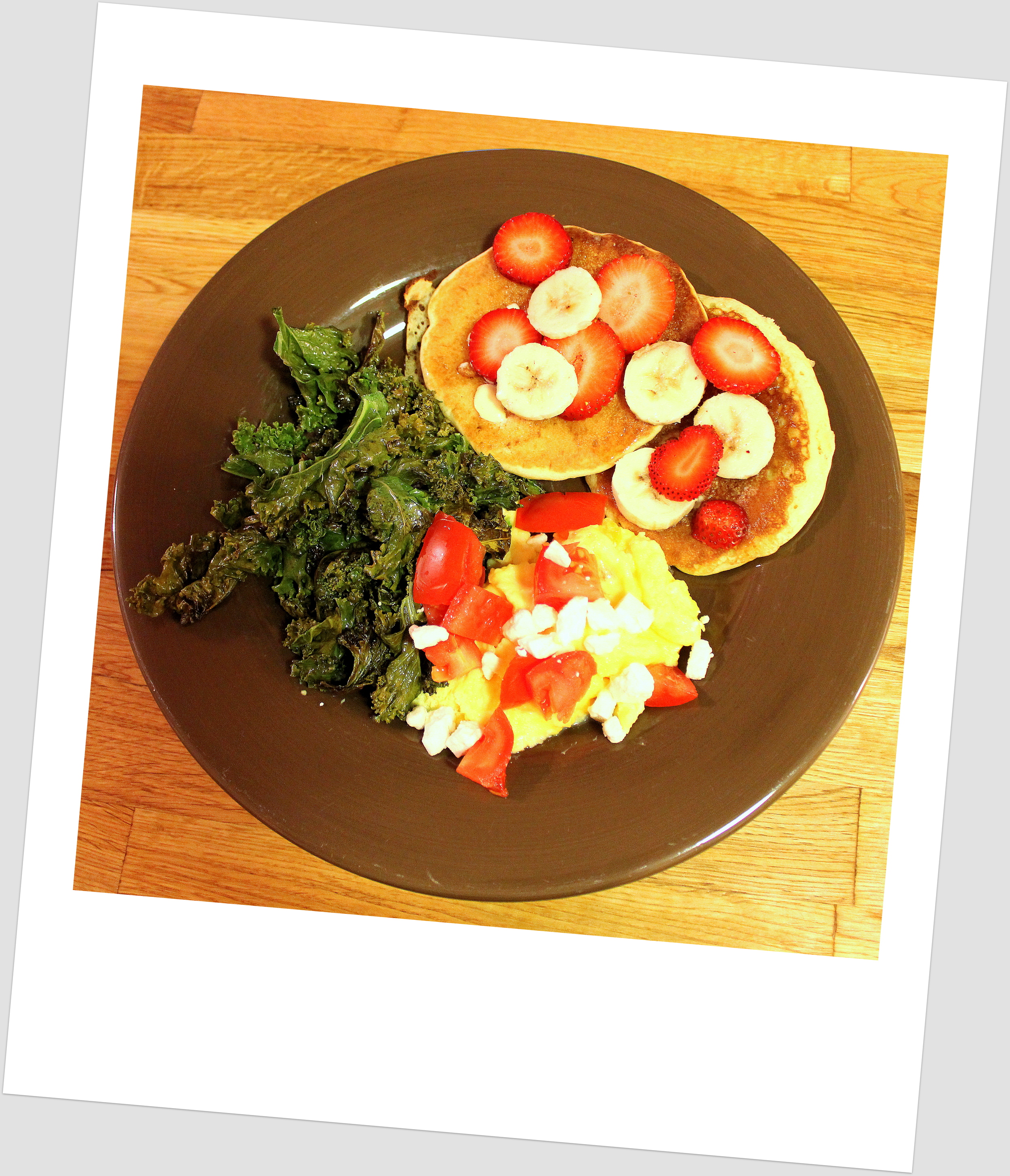
Scrambled Eggs with Kale and Feta
Ingredients:
-
1 bunch fresh kale
-
2 Tbsp. canola oil
-
8 whole eggs
-
1/4 c. skim milk
-
1/4 tsp. salt
-
3 medium tomatoes
-
1/2 c. feta cheese
Instructions:
-
Take your bunch of kale and strip off the leaves and tear them into bite-sized pieces. Heat canola oil in a large skillet; when hot, add kale and sauté
-
Meanwhile, in a mixing bowl beat 8 eggs, 1/4 cup of milk, and 1/4 tsp. salt. Heat a non-stick skillet over medium heat; when the pan is warm, pour in eggs. Stir every few minutes with a heat-resistant spatula until eggs are creamy and cooked through.
-
Dice tomatoes and set aside.
-
Serve eggs hot, topped with feta cheese, tomatoes, and kale.
Serves 4 – Nutrients per serving: 282 calories — 21g total fat — 6g saturated fat — 383 mg cholesterol — 505 mg sodium — 10g total carbohydrates — 2g fiber — 18g protein
2 thoughts on “Breakfast for Dinner”
I feel so proud to get a s/o in your second blog post! (And I’m so thrilled you finally have a blog! I’ve already added you to my Feedly!)
Thanks, Ann. It’s great to get some of the misinformation cleared up about eggs. Now I can eat and enjoy them guilt free again.